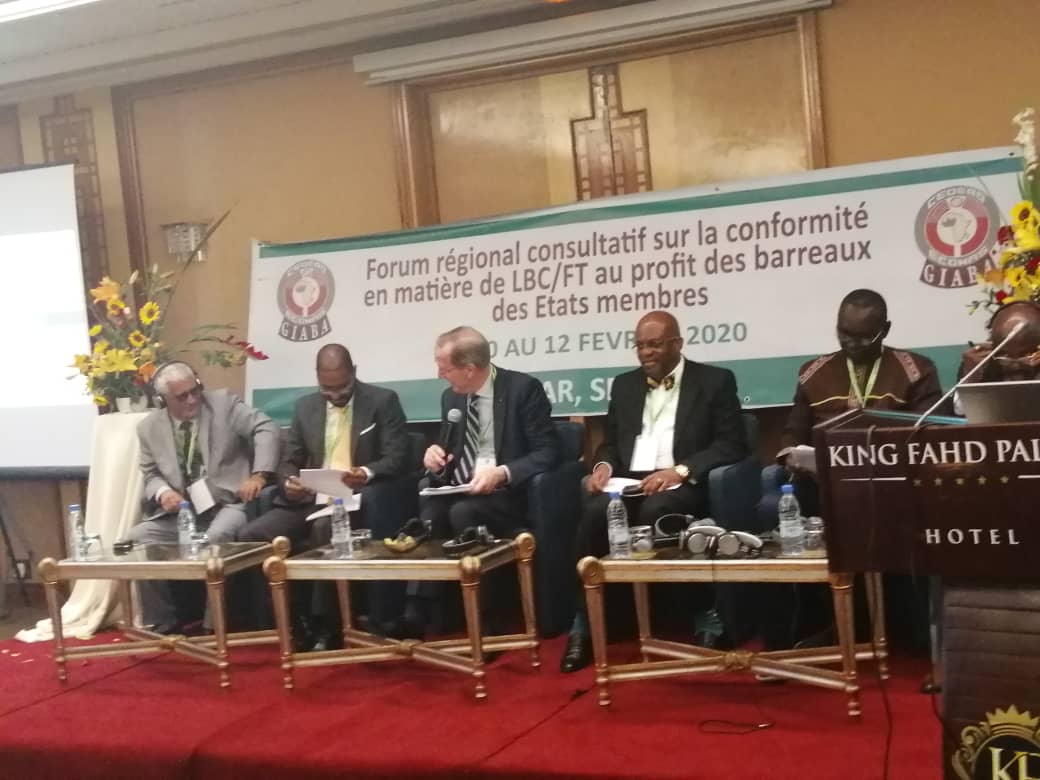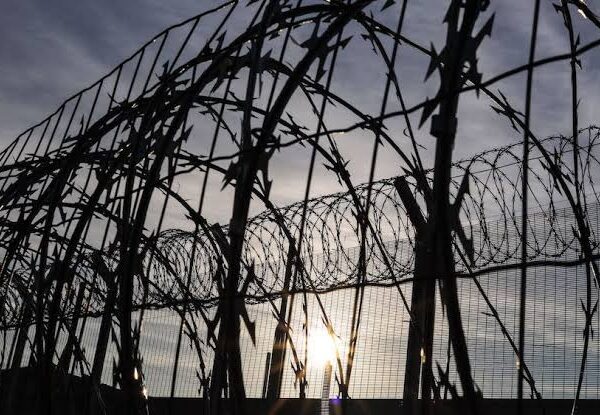The president of the NBA, Paul Usoro, SAN, today presented his paper at the GIABA Consultative Forum holding in Senegal. The paper was titled, “The legal Profession and the Implementation of AML/CFT requirements: Perspectives of GIABA Member States. ”
Set-out and acknowledged facts
The president commenced his presentation by introducing set out facts which are the provisions of the law and relevant practices obtainable in the legal profession in Nigeria. They include:
- Most lawyers in Nigeria are far removed from money laundering and/or financing of terrorism activities
- Lawyers are exempt from reporting obligations under MLA
- Fact that lawyers are exempt from reporting obligations does not howsoever create a hole in the enforcement of MLA
- > There are sufficient provisions in the law to enable law enforcement agencies do the work, if they are conscientious and diligent, without requiring any input from lawyers.
- Exemption from reporting obligations does not:
- exempt lawyers from general obligations under MLA – criminal is a criminal, whether a lawyer or not.
- Obviate or remove self-regulatory role of Bar Associations
He went on to discuss the NBA Disciplinary Process.
He summarised that:
- LPDC Architecture works in such a way that reports are made to NBA by any aggrieved person against legal practitioners.
- Any aggrieved person could be: Law enforcement agencies e.g., the police. The Nigeria Police Force have reported before but the Economic anf Financial Crimes Commission and the NFIU have never reported.
- Afterwards, the NBA processes the complaints and if there is a prima facie case for the legal practitioner to answer, such matter is passed on to LPDC.
- Basis for complaints are usually infamous conduct or conduct not compatible with the status of a legal practitioner or against the Rules
- Rules of Professional Conduct as published by HAGF pursuant to LPA guides conduct of lawyers
- LPDC is made up of panel – SANs and Judges
- Appeals from LPDC go to the Supreme Court
- No Supreme Court Justices sits on LPDC
- Sanctions range from suspension for a period to disbarment. Worst thing you can do to a lawyer is disbarment and that’s the sanction lawyers dread the most.
Role of Law Enforcement Agents
The President discussed the main ingredient of Money Laundering and Terrorism being the movement of money generally – It could be vash or finacial instruments or take the form of Real estate and/or the Operation of nominee companies.
He mentioned that there are enough Nigerian laws and regulations to enable law enforcement agencies follow the trail of money and detect criminal conducts if diligence is applied.
Already, Cash transactions are prohibited and made illegal at certain thresholds. Some legislators were taken to court for collecting their constituency allowances in cash.
Collecting cash beyond certain limits are sanctioned through payment
of punitive charges i.e. certain percentages. Most lawyers who are
barely eking a living cannot afford to pay those punitive charges.
Entire essence of these regulations and laws is to ensure that movement of cash is entirely limited to the ecosystem of financial institutions.
To further the balance, very strict and stringent reporting obligations are placed on financial institutions.
What all of these translate into is full visibility of the financial ecosystem by law enforcement agencies, sufficient for them to detect suspicious transactions, if diligence is applied.
Obligations of Lawyers and NBA
The president discussed this in the light of the RPC Rule 15(3)(i) which stipulates that “in his representation of his client, a lawyer shall not . . . counsel or assist his client in conduct that the lawyer knows to be illegal or fraudulent”.
He drew a rightful distinction between between representing client who’s allegedly involved in illegal or fraudulent conduct and counseling or assisting “client in conduct that the lawyer knows to be illegal or fraudulent”. If a lawyer actively and knowingly takes on the role of assisting his client in money laundering or terrorism financing (e.g. nominee director or real estate agent) or any other criminal conduct, he becomes an accessory or an accomplice to a crime. This is totally different from representing drug baron in a court case or even unknowingly representing the drug baron in real estate or such other or any other transactions.
Law Enforcement Agencies who follow the trail of money and can detect when lawyers are accomplices in criminal or illegal conducts are in a position to make the relevant report to LPDC through the NBA pursuant to
The lawyer will then defend himself and establish whether he knowingly or unknowingly counseled and/or assisted his client in carrying out illegal and/or fraudulent activities. Sanction could be disbarment without prejudice to criminal prosecution where the lawyer is found liable.
Reporting obligation of the law enforcement agencies to the Bar Associations should therefore be highlighted and emphasized rather than the other way round.
For this to work, law enforcement agencies must see themselves more as partners with Bar Associations and lawyers. Demonization of lawyers and adversarial relationships must stop and be replaced with and by collaborative endeavors.
Due Diligence
He president went further to state that the fact that there is no reporting obligation does not remove need for due diligence by lawyers on clients. Self-preservation and professional conduct dictate the need for such due diligence.
Money laundering investigations and prosecutions are now global endeavors and even if one is exempted in Nigeria, you may find yourself being investigated from outside Nigeria and/or sanctioned/prosecuted.
What should lawyers do where due diligence establishes a client or prospective client is involved in illegal or criminal conduct and is using your services?
The president stated that reporting is not always an outrightly available option, but it is always a proper step to walk away and leave the client.
Recommendations
The president ended his speech my making succinct recommendations for better efficiency in the fight against money laundering. They include:
- Education of lawyers is key
- Law Enforcement Agencies must live up to their own responsibilities
- Partnerships with and reporting obligations to Bar Associations
- Adversarial stance and demonization of lawyers must stop
- Bar Associations and lawyers are not exempt from Money Laundering obligations
- Self-regulatory functions of Bar Associations remain
- Due Diligence by lawyers is still key – not necessarily for reporting purposes.



